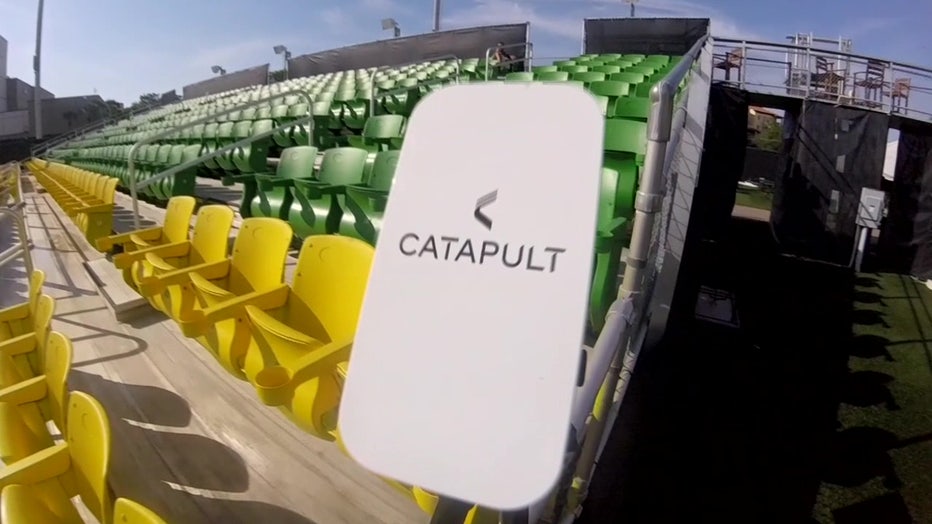Rowdies go high-tech to help train, monitor player’s performances
ST. PETERSBURG, Fla. - The Tampa Bay Rowdies are using high-tech advancements to track players' performance at practice and use the information to change how they play during games.
Advancements in computer technology are changing the way professional teams train. The Rowdies have been using GPS trackers for the last four seasons to measure and monitor players' speeds and distances during practice. For Rowdies performance coach Pete Calabrese it's been a game-changer.
"Yeah it's been huge," shared Calabrese. "I'd say you're almost behind the times if you're not using it now. "It's just the simple fact of reality."
Each player has a tracker fitted in the back of a vest-like harness that sends a wireless signal to this receiver and Calabrese is able to monitor up to 8000 different pieces of data.
"It's insane," said Calabrese. "I like to keep life simple. I pick about 8 (metrics) and build my sessions off of it and give the feedback to the coaching staff."
"We can take a look at an individual player's total distance, his (heart) rate per minute. Another good intensity metric, differences in different speed zones," Calabrese stated.

The Rowdies use the Catapult system during practice to prepare for upcoming games. They really don't utilize it in games, other than for measuring the distance players run. During their longest game last season. An overtime game against Louisville. The team combined to run 93 miles.
READ 175 footballers show for Rowdies open tryouts
"It is mind-boggling," said Calabrese. "Our goal is obviously to get results and do as little work as possible. If we can get results and do 8700 meters (4.5 miles) then it just means they are just fresher for the next match."
Coaches can get overloaded trying to analyze all of the numbers, but the clear benefit is that it’s helping players reach peak performance while keeping them out of the training room and on the field. It's been the biggest benefit Coach Calabrese has seen.
"Reduction of injuries in a climate like Florida it's huge," Calabrese explained. "You'll see our training sessions change as we get into the hotter months. Come July we're on the field maybe 50 minutes (compared to 90-minutes)."


